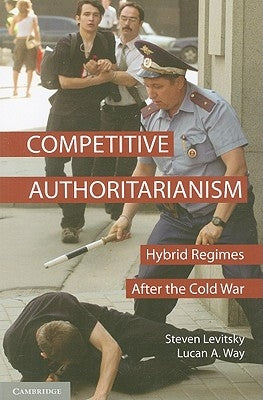Cambridge University Press
Competitive Authoritarianism: Hybrid Regimes After the Cold War
Competitive Authoritarianism: Hybrid Regimes After the Cold War
Regular price
$39.00
Regular price
Sale price
$39.00
Unit price
per
Shipping calculated at checkout.
Couldn't load pickup availability
Competitive authoritarian regimes - in which autocrats submit to meaningful multiparty elections but engage in serious democratic abuse - proliferated in the post-Cold War era. Based on a detailed study of 35 cases in Africa, Asia, Latin America, and post-communist Eurasia, this book explores the fate of competitive authoritarian regimes between 1990 and 2008. It finds that where social, economic, and technocratic ties to the West were extensive, as in Eastern Europe and the Americas, the external cost of abuse led incumbents to cede power rather than crack down, which led to democratization. Where ties to the West were limited, external democratizing pressure was weaker and countries rarely democratized. In these cases, regime outcomes hinged on the character of state and ruling party organizations. Where incumbents possessed developed and cohesive coercive party structures, they could thwart opposition challenges, and competitive authoritarian regimes survived; where incumbents lacked such organizational tools, regimes were unstable but rarely democratized.
Author: Steven Levitsky, Lucan A. Way
Binding Type: Paperback
Publisher: Cambridge University Press
Published: 08/16/2010
Series: Problems of International Politics
Pages: 536
Weight: 1.65lbs
Size: 9.20h x 6.10w x 1.40d
ISBN: 9780521709156
Author: Steven Levitsky, Lucan A. Way
Binding Type: Paperback
Publisher: Cambridge University Press
Published: 08/16/2010
Series: Problems of International Politics
Pages: 536
Weight: 1.65lbs
Size: 9.20h x 6.10w x 1.40d
ISBN: 9780521709156


